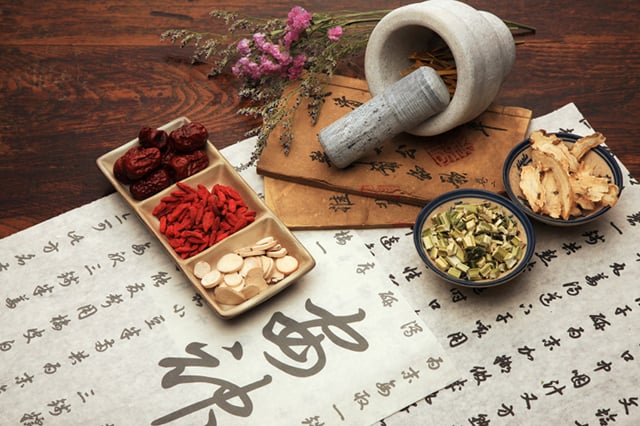Chinese Herbs
What is Chinese Herbal Medicine?
| |
Chinese herbal medicine is the oldest and most comprehensive form of herbal medicine in the world. It is derived from natural plant sources. The use of these substances can be traced back to 1,000 BC. Over the past 5000 years, along with acupuncture, it is a main component of Traditional Chinese Medicine (TCM). It has been used to cure diseases and alleviate discomfort caused by many disorders.
Chinese herbal medicine is most commonly used with acupuncture treatments to accelerate and maintain the therapeutic effects of the treatment. Furthermore Chinese herbal medicine may be used to treat conditions that are not as effectively treated by acupuncture.
What is the difference between Chinese and Western herbs?
| |
A Chinese herbal formula has as many as 10-25 different herbs to treat disorders of a patient, while Western herbal medicine tends to use one or two herbs to treat just a specific symptom. The Chinese herbs are selected to work synergistically to treat the whole person. In Traditional Chinese Medicine, based on our diagnostic system, we are trained to see a person's whole constitution (the health of his whole body) and treat the root (or cause) of health problems along with the symptoms.
Are Chinese herbs safe?
| |
One of the most appealing aspects of Chinese herbal medicine is that there are no side effects.
What is a Chinese herbal formula?
| |
Chinese herbs are rarely prescribed alone in Traditional Chinese Medicine. For thousands of years, we have been using Chinese herbal medicine. We have a system of using several different herbs together. The combination of substances in a formula creates a new therapeutic agent that can treat a specific person's conditions much more effectively.
Do you select good quality Chinese herbs?
| |
The Chinese herbs that we use are of the highest potency, quality, and safety. We only use herbs from manufacturers that are certified as having  Good manufacturing practices (GMP)--strict international standards of manufacturing even more strict than in the U.S. with regards to processing herbs.
Good manufacturing practices (GMP)--strict international standards of manufacturing even more strict than in the U.S. with regards to processing herbs.
